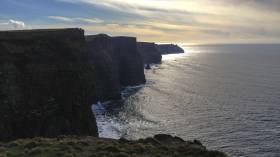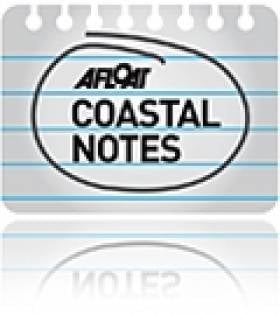Displaying items by tag: Aarhus convention
Public Consultation On Ireland's Second Aarhus Convention Report
#Aarhus - Environment Minister Denis Naughten has launched the public consultation for a second implementation under the UN's Aarhus Convention on community participation in environmental issues.
Ratified in June 2012 after a long call by environmental and coastal community campaigners, the Convention on Access to Information, Public Participation in Decision-making and Access to Justice in Environmental Matters lays down a set of basic rules to promote citizens’ involvement in environmental matters and improve enforcement of environmental law.
Its provisions are broken down into three pillars: Access to Information on the Environment; Public Participation in Environmental Decision-making; and Access to Justice.
In what his department says is an effort to keep with the spirit of the convention, Minister Naughten has called on the public, including environmental NGOs, to submit comments on the implementation of the Aarhus Convention in Ireland prior to finalising Ireland's second National Implementation Report to the United Nations Economic Commission for Europe (UNECE).
The purpose of this consultation is to provide the UNECE as well as the Aarhus Convention Secretariat and Compliance Committee with the widest possible range of views and opinions on issues related to the implementation and promotion of the convention in Ireland.
The Department of Communications, Climate Action and Environment website has the draft report and details of the consultation, for which comments should be submitted no later than 5pm on Friday 28 October.
Campaigners Call on Govt to Back Aarhus Convention
Grassroots campaigners have called on the Government to ratify a UN convention on public access to decision-making on environmental issues.
According to The Irish Times, activists at the first All-Ireland Community Campaigns Gathering in Dublin recently claimed that coastal communities would have been “spared a decade of distress” if the Aarhus convention had been adopted into Irish law.
Ireland is one of just a handful of European countries yet to ratify the Aarhus convention, first adopted in 1998. Former Environment Minister John Gormley left office before fulfilling his promise to do so.
Mamie Bowen of the Cork Harbour Alliance for a Safe Environment (Chase) cited the approval of a foreshore licence for the Corrib gas pipeline, despite local concerns, as an example of the Government allowing private companies to "impose dangerous projects on communities.”
The common-cause gathering was attended by community activists from Cork, Derry, Donegal, Dublin, Kerry, Limerick, Mayo and Tyrone.
The Irish Times has more on the story HERE.






























































